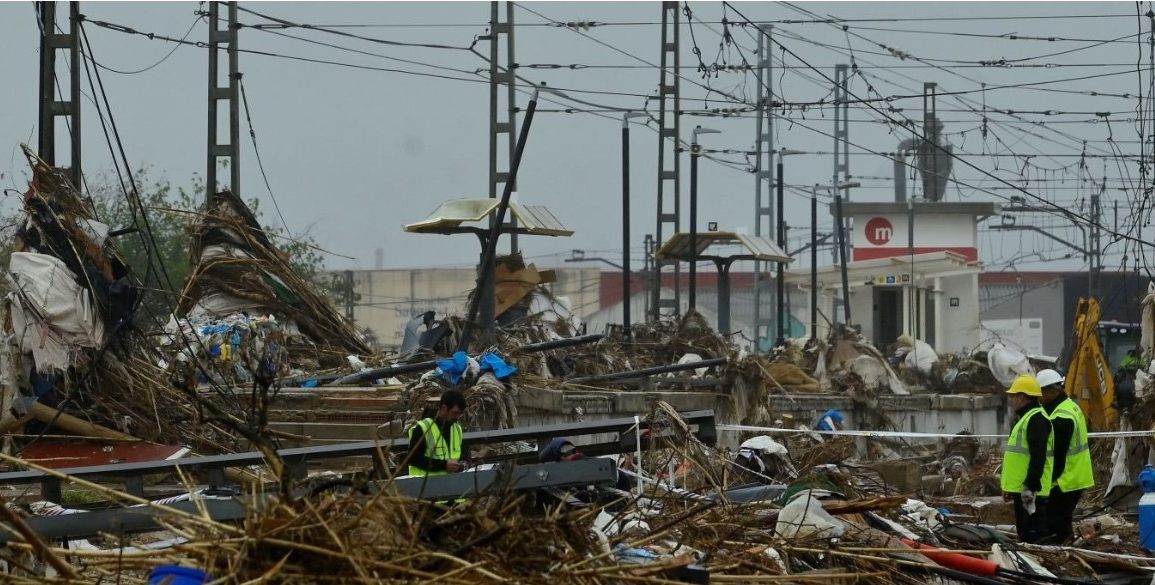Floodwaters inundate Valencia as Spain mourns the loss of 214 lives, highlighting the urgent need for timely warnings and improved disaster preparedness in climate-vulnerable regions.
Emergency responders assess damage amid debris and battered cars in flooded neighborhoods, emphasizing the critical role of resilient infrastructure and community preparedness in the face of climate-intensified disasters.
Spain is grappling with the aftermath of severe floods that have claimed 214 lives.
Despite accurate forecasts, inadequate communication of the flood’s risks left people unprepared, highlighting a gap between scientific awareness of climate impacts and effective disaster response.
Spain’s emergency alerts came too late, reaching residents only after they were already in peril.
Such shortcomings echo a similar incident in Germany in 2021, where delayed or vague warnings contributed to tragic losses, including the deaths of disabled residents in a care home.
Floods like this are becoming more common as climate change intensifies, making extreme rainfall both more severe and frequent.

An analysis by World Weather Attribution found that climate change increased Spain’s recent extreme rainfall by 12% and doubled the likelihood of such events.
However, local leaders like the mayor of Paiporta, where dozens died, noted that the area had little history of severe flooding, contributing to a false sense of security.
Climate-driven weather extremes are now reaching regions previously unfamiliar with such disasters, complicating preparedness efforts.
Experts agree that disaster preparedness must evolve to meet these new realities.
Local governments need better resources to inform communities about risks, create actionable evacuation plans, and establish clear communication channels.
Instead of solely focusing on post-disaster cleanup, more preventive measures are needed, such as improved infrastructure and emergency response coordination.
Reconstructing with resilience in mind is essential.
Urban landscapes across Europe are heavily developed, which exacerbates flooding by creating impermeable surfaces.
Giving rivers more room to flow and rethinking city planning could help mitigate future disaster impacts.
The climate crisis underscores the urgency for communities worldwide to adapt and prioritize public safety in an increasingly volatile environment.

